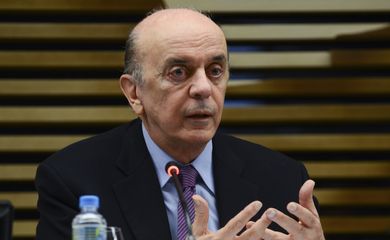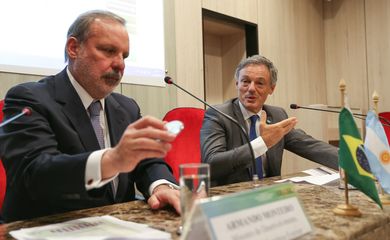Brazil, Argentina close trade facilitation agreements




Brazil's Foreign Trade Secretary Daniel Godinho Elza Fiuza/Agencia Brasil
The governments of Brazil and Argentina on Tuesday (Aug. 2) signed two agreements to facilitate trade between the two countries. The main one creates a Digital Certificate of Origin that will benefit exporters and importers on both sides of the border, especially small and medium enterprises, which are seen as crucial for economic recovery.
It currently takes Brazilian importers and exporters one to three days to obtain a certificate of origin, a required step to complete a trade transaction. With the agreement, the certificate can be issued online in 30 minutes. According to Brazil's Foreign Trade Secretary Daniel Godinho, “it will cut down red tape costs by 35%, which will benefit mainly small and medium businesses, to whom the process is more costly.”
The other agreement outlines the adoption by Argentina of an online platform along the lines of Brazil's Single Window Foreign Trade Portal, designed to expedite export and import processes. The aim is to integrate the two systems to facilitate bilateral trade.
The agreements were signed at the end of a visit to Buenos Aires from Brazil's Minister of Industry, Foreign Trade and Services, Marcos Pereira, in which he met business leaders and Argentina's Production Minister Francisco Cabrera. Pereira reported Brazil and Argentina have arranged meetings for August, September and October to discuss trade integration agreements with the European Union (EU), Canada, and the four member countries of the European Free Trade Association (EFTA)—Iceland, Liechtenstein, Norway, and Switzerland.
The two ministers expressed optimism about economic recovery in their countries, despite the current recession and the MERCOSUR crisis. MERCOSUR is currently headless after Uruguay ended its rotating presidency without an official handover of the rotating presidency to the next country in line by alphabetical order, Venezuela, due to objections from Brazil, Paraguay, and Argentina.
Venezuela, the last country to join MERCOSUR, was expected to comply with all full membership requirements by this month. But the country faces a difficult economic and political situation which challenges its adjustment to the MERCOSUR rules.
Still, the Venezuelan government insists their country is entitled to assume the rotating presidency of the bloc, and has issued a harsh statement against Brazil, Argentina, and Paraguay. According to Pereira, although the MERCOSUR chair is officially considered to be vacant, negotiations with other countries will continue under Uruguay's leadership.
Translated by Mayra Borges
Fonte: Brazil, Argentina close trade facilitation agreements




